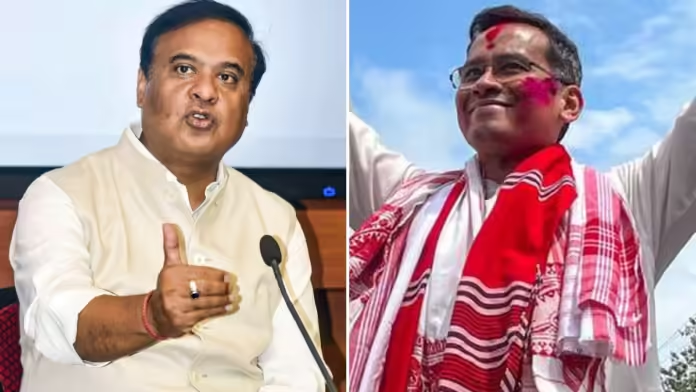Deputy leader of the Congress in Lok Sabha, Gaurav Gogoi, has raised significant concerns regarding the environmental repercussions of ongoing infrastructure projects in Assam. He recently penned a letter to Chief Minister Himanta Biswa Sarma, urging the government to reassess its approach to these developments. Gogoi highlighted that while infrastructure growth is essential for economic development, it must not come at the cost of the environment or the well-being of local communities.
In his letter, Gogoi emphasized that many infrastructure projects have started without proper environmental assessments. He noted that these assessments play a crucial role in understanding the potential impact on local ecosystems, wildlife, and communities that depend on natural resources for their livelihoods. Without thorough evaluations, projects could lead to long-term damage, including deforestation, loss of biodiversity, and disruption of local water systems. Gogoi’s appeal for a more careful consideration reflects growing awareness among lawmakers about the need for sustainable development practices.
Assam boasts rich biodiversity, with its lush forests and rivers providing a habitat for numerous species, including the iconic one-horned rhinoceros. Gogoi pointed out that these projects often threaten delicate ecosystems. He urged Sarma to consider alternatives that prioritize environmental conservation while still facilitating infrastructure growth. By integrating green practices into project planning, the government can ensure that economic benefits do not compromise the natural heritage of Assam.
The impact of infrastructure projects extends beyond the environment; they also affect local communities. Many residents rely on the land and resources for their livelihoods. Gogoi expressed his concern about the displacement of communities and the loss of agricultural land due to these projects. He underscored that development should include the voices of the people it affects. Engaging with local communities can provide valuable insights into how projects may impact their lives and suggest more sustainable solutions that meet everyone’s needs.
Gogoi’s letter also called attention to the importance of transparency and accountability in project execution. He argued that citizens should have access to information about the projects, including their environmental assessments and potential impacts. Such transparency can foster trust between the government and the communities it serves. By keeping the public informed, the government can encourage constructive dialogue about development, ensuring that it aligns with the interests of all stakeholders.
In recent years, the conversation around sustainable development has gained momentum, both globally and in India. Gogoi’s initiative highlights a critical aspect of this discourse, especially in a region like Assam, where the balance between development and environmental preservation is delicate. The state government must recognize the interconnectedness of these issues and take a holistic approach to planning and executing infrastructure projects.
Sarma’s administration has prioritized infrastructure development as part of its broader vision for economic growth. However, Gogoi’s intervention serves as a timely reminder that such growth must be responsible and inclusive. Failure to consider environmental and social factors could result in negative consequences, including public unrest and increased resistance to future projects.
The dialogue initiated by Gogoi’s letter reflects a growing awareness among political leaders about the implications of development policies. It encourages a more participatory approach to governance, where local communities play an integral role in shaping the direction of projects that affect their lives. By fostering collaboration between the government, environmentalists, and local communities, Assam can pursue a path of sustainable development that honors its natural resources while meeting the needs of its people.
As Assam moves forward, the challenge lies in finding a balance that promotes growth without compromising the environment. Gogoi’s letter acts as a catalyst for change, prompting discussions about the need for a more sustainable approach to infrastructure development. The Assam government has the opportunity to lead by example, demonstrating that economic progress can coexist with environmental stewardship. This approach can ensure a healthier, more equitable future for all residents of Assam, where development benefits both the economy and the environment.
By taking the concerns raised by Gogoi seriously, Sarma can align his administration’s objectives with the growing demand for sustainable practices in development. Addressing these concerns will not only enhance the quality of life for local communities but also safeguard Assam’s rich natural heritage for generations to come.


